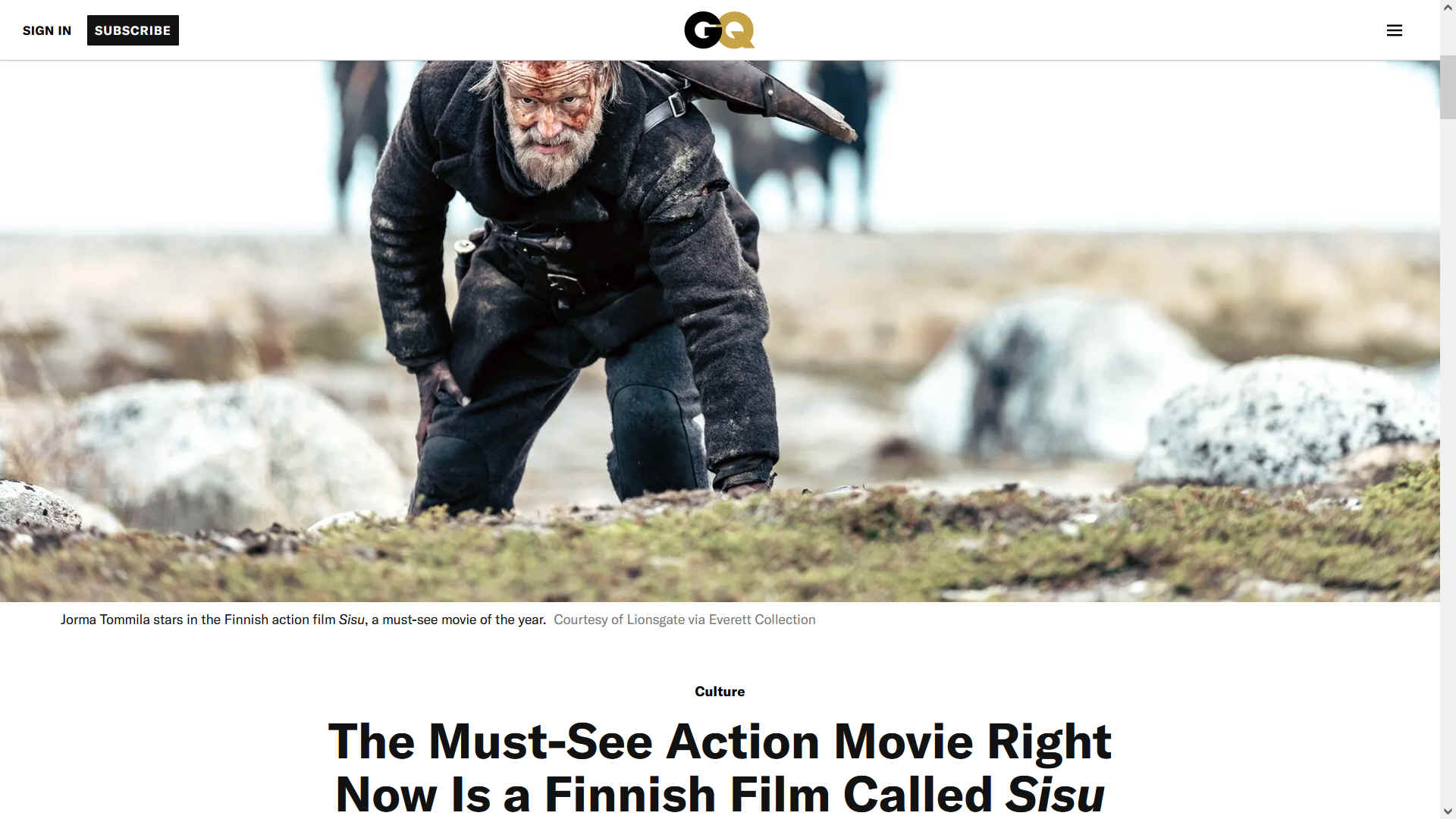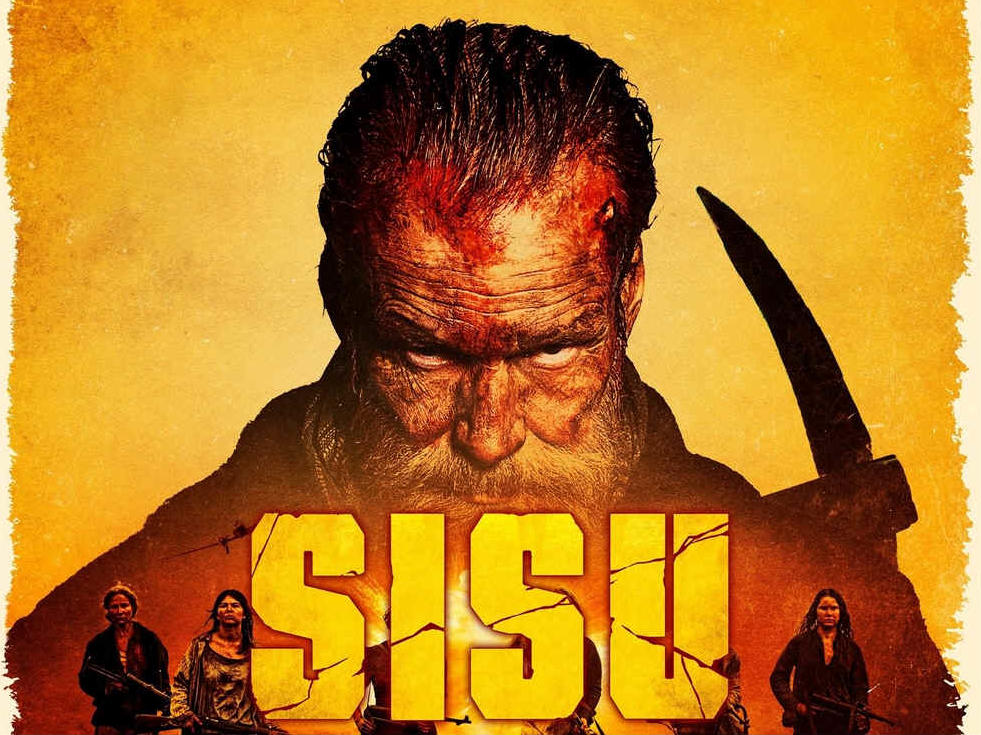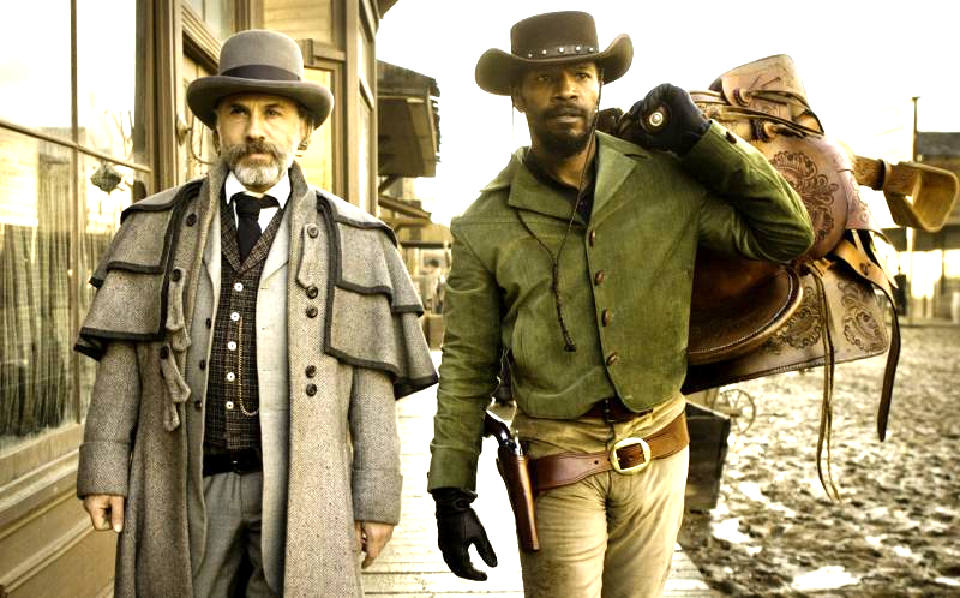|

In the United Kingdom, The
Colonial is Sisu, thrust into a world of Nazi Councillors and
Council officials, all on the make, sworn not to reveal the truth and to
watch each other's backs, including Sussex police, guaranteeing them
immunity from prosecutions. No evidence would ever be gathered and
existing files would be systematically destroyed. In the UK,
the state controls the crime scene and Legal Aid does not (did not)
extend to obtaining independent forensic medical evidence. Barrister
Julian Dale, and Solicitor Timothy Stirmey confirmed that to the
defendant. Later, barristers in England went on strike because Legal Aid
fees were so low, they were unable to defend their clients. It is
likely, as alleged, that The Colonials legal team, were bribed
to throw in the towel. The CPS and Sussex police, in on it.
As
revenge movies go, this film is quite simply a masterpiece. The musical score and opening sequences set the mood immediately. The cast could not have been better chosen - each carries off their part with absolute believability. The first action scene is
brilliant, a battle in Germania, also telling the audience that they're in for a good ride. Russell Crowe is Maximus, his adversary Joaquin Phoenix, Commodus. A great goodie and a great baddie. Stunning locations and scenery add to the occasion, a recreation of the
Roman Empire at time of change. The direction and acting is flawless, from the main characters and supporting cast. For this reason the epic film is
one of Victor's favorites the moment he saw it is 2000, foretelling it
would become an all time classic. Also inspiring him to avenge his
family and friends, to eventually obtain justice against the evil council
that had destroyed his life by conspiring to lie to the Planning
Inspectorate and High Court judges and defraud him of a home and income.
Unaware, of the depths this corrupt regime would stoop to, in order to
avoid being found out, they being petrified as to the possibility of
having to pay human
rights damages for their illegal vendetta and sustained
institutionalised discrimination. Wealden simply made it up as they went
along, believing they were above the law.

Gladiator is a 2000 epic historical drama film directed by Ridley Scott and written by David Franzoni, John Logan, and William Nicholson. It stars
Russell
Crowe, Joaquin Phoenix, Connie Nielsen, Tomas Arana, Ralf Möller, Oliver Reed (in his final role), Djimon Hounsou, Derek Jacobi, John Shrapnel, Richard Harris, and Tommy Flanagan.
Crowe portrays Roman general Maximus Decimus Meridius, who is betrayed when Commodus, the ambitious son of Emperor Marcus Aurelius, murders his father and seizes the throne. Reduced to slavery, Maximus becomes a gladiator and rises through the ranks of the arena, determined to avenge the murders of his family and the emperor.
The screenplay, initially written by Franzoni, was inspired by the 1958 Daniel P. Mannix novel Those About to Die. The script was acquired by DreamWorks Pictures, and Scott signed on to direct the film. Principal photography began in January 1999 and wrapped in May of that year. Production was complicated by the script being rewritten multiple times and by the death of Oliver Reed before production was finished.
Gladiator grossed $465.4 million worldwide, becoming the second highest-grossing film of 2000. Critics praised the acting, directing, cinematography, production design, and musical score. The film won five Academy Awards, including Best Picture and Best Actor for Crowe. A sequel, titled Gladiator II, is scheduled to be released in the United States on November 22, 2024.
PLOT
In 180 AD, Roman general Maximus Decimus Meridius intends to return home after he leads the Roman army to victory against Germanic tribes near Vindobona on the Limes Germanicus. Emperor Marcus Aurelius tells Maximus that his own son, Commodus, is unfit to rule and that he wishes Maximus to succeed him, as regent, to restore the Roman Republic. Wishing to seize power, Commodus secretly murders his father.
Commodus proclaims himself the new emperor and requests loyalty from Maximus, who refuses. Maximus is arrested by Praetorian Guards led by Quintus, who tells him that he and his family will die. Maximus kills his captors and, wounded, rides for his home near Turgalium, where he finds his wife and son dead. Maximus buries them and collapses from his injuries. He is captured by slave traders, who take him to Zuccabar in the Roman province of Mauretania Caesariensis, where he is sold to gladiator trainer Proximo.
Maximus reluctantly fights in local tournaments, his combat skills helping him win matches and gain popularity. He earns the nickname "the Spaniard" and befriends Juba, an African gladiator from Carthage. In Rome, Commodus organizes 150 days of gladiatorial games to commemorate his father and win the approval of the Roman people. Upon hearing this, Proximo reveals to Maximus that he was once a gladiator who was freed by Marcus Aurelius, and advises him to "win the crowd" to win his freedom.
Proximo takes his gladiators to fight in Rome's Colosseum. Disguised in a masked helmet, Maximus debuts in the arena as a Carthaginian in a re-enactment of the Battle of Zama. Unexpectedly, he leads his side to victory and wins the crowd's support. Commodus and his young nephew, Lucius, enter the Colosseum to offer their congratulations. Seeing Lucius, Maximus refrains from attacking Commodus, who orders him to reveal his identity; Maximus removes his helmet and declares vengeance. Commodus is compelled by the crowd to let Maximus live. That evening, Maximus is visited by Lucilla, his former lover and Commodus's sister. Distrusting her, Maximus refuses her help.
Commodus arranges a duel between Maximus and Tigris of Gaul, an undefeated gladiator. Several tigers are set upon Maximus, but he prevails. At the crowd's desire, Commodus orders Maximus to kill Tigris, but Maximus spares his life in defiance. In response, the crowd chants "Maximus the Merciful", angering Commodus. To provoke Maximus, Commodus taunts him about the murder of his family, but Maximus resists the urge to strike him. Increasingly paranoid, Commodus instructs his advisor, Falco, to have every senator followed, and refuses to have Maximus killed for fear he will become a martyr.
Maximus discovers from Cicero, his ex-orderly, that his former legions remain loyal. He meets in secret with Lucilla and Gracchus, an influential senator. They agree to help Maximus escape Rome to join his legions in Ostia, topple Commodus by force, and hand power back to the Roman Senate. The Praetorians arrest Gracchus. Lucilla meets Maximus at night to arrange his escape; they share a kiss. Commodus becomes suspicious when Lucilla's son, Lucius, innocently hints at the conspiracy. Commodus threatens Lucilla and Lucius, and has the Praetorians attack the gladiators' barracks. Proximo and his men sacrifice themselves to enable Maximus to escape. Maximus is captured at the rendezvous with Cicero, where the latter is killed.
Commodus demands that Lucilla provide him with an heir. He challenges Maximus to a duel in the Colosseum to win back public approval, and stabs him before the match to gain an advantage. Despite his injury, Maximus disarms Commodus during the duel. After Quintus and the Praetorians refuse to help him, Commodus unsheathes a hidden knife; Maximus overpowers Commodus and drives the knife into his throat, killing him. Before Maximus succumbs to his wound, he asks for political reforms, the freedom of his gladiator allies, and the reinstatement of Senator Gracchus. As he dies, Maximus envisions reuniting with his wife and son in the afterlife. His friends and allies honor him as "a soldier of Rome", at Lucilla's behest, and carry his body out of the arena. That night, Juba visits the Colosseum and buries figurines of Maximus's wife and son at the spot where he died.
CAST
- Russell Crowe as Maximus Decimus Meridius: A Roman general forced into slavery who seeks revenge against Emperor Commodus for the murder of his family and the previous emperor, Marcus Aurelius.
- Joaquin Phoenix as Commodus: The amoral and power-hungry son of Marcus Aurelius. He murders his father when he learns that Maximus will hold the emperor's powers in trust until a new republic can be formed. After gaining power, he seeks to weaken the power of the Senate and establish absolute rule.
- Connie Nielsen as Lucilla: Maximus's former lover and the older child of Marcus Aurelius. Lucilla has been recently widowed. She resists her brother's incestuous advances while protecting her son, Lucius, from Commodus's corruption and wrath.
- Oliver Reed as Antonius Proximo: An old, gruff gladiator trainer who buys Maximus in North Africa. A former gladiator himself, he was freed by Marcus Aurelius and becomes a mentor to both Maximus and Juba.
- Derek Jacobi as Senator Gracchus: A member of the Roman Senate who opposes Commodus's rule. He is an ally of Lucilla and Maximus.
- Djimon Hounsou as Juba: An African tribesman who was taken from his home and family by slave traders. He becomes Maximus's closest ally and inspires him to bring down Commodus.
- Richard Harris as Marcus Aurelius: The elderly emperor of Rome who appoints Maximus to be his successor, with the ultimate aim of returning Rome to a republican form of government. He is murdered by his son Commodus before his wish can be fulfilled.
- Ralf Möller as Hagen: A Germanic warrior and Proximo's chief gladiator who befriends Maximus and Juba during their battles in Rome.
- Tommy Flanagan as Cicero: Maximus's loyal servant who provides liaison between the enslaved Maximus, his former legion based at Ostia, and Lucilla. He is used as bait for the escaping Maximus and is eventually killed by the Praetorian Guard.
- David Schofield as Senator Falco: A patrician senator opposed to Gracchus. He helps Commodus to consolidate his power.
- John Shrapnel as Senator Gaius: A Roman senator allied with Gracchus, Lucilla and Maximus against Commodus.
- Tomas Arana as Quintus (loosely based on Quintus Aemilius Laetus): A Roman military officer and commander of the Praetorian Guard who betrays Maximus by allying with Commodus. He later refuses to assist Commodus in his duel with Maximus.
- Spencer Treat Clark as Lucius Verus: The young son of Lucilla. He is named after his father Lucius Verus, who was co-emperor of Rome until 169 AD. He is also the grandson of Marcus Aurelius. He idolizes Maximus for his victories in the arena.
- David Hemmings as Cassius: The master of ceremonies for the gladiatorial games in the Colosseum.
- Sven-Ole Thorsen as Tigris of Gaul. The only undefeated gladiator in Roman history, he was brought out of retirement by Commodus to kill Maximus.
- Omid Djalili as a slave trader.
- Giannina Facio as Maximus's wife.
- Giorgio Cantarini as Maximus's son, who is the same age as Lucilla's son, Lucius.
- John Quinn as Valerius, a Roman general in the army of Maximus.
DEVELOPMENT
David Franzoni, who wrote the first draft of the Gladiator screenplay, traveled across Eastern Europe and the Middle East by motorcycle in 1972. "Everywhere I went in Europe, there were arenas," Franzoni recalled. "Even as I went east, going through Turkey, I began to think to myself this must have been a hell of a franchise." During a stop in Baghdad, Iraq, he started reading the 1958 Daniel P. Mannix novel Those About to Die (subsequently titled The Way of the Gladiator), which gave him the idea for Gladiator.
Twenty-five years later, Franzoni wrote the screenplay for Steven
Spielberg's Amistad, which was the director's first film for DreamWorks Pictures. Though Amistad was only a moderate commercial success,
DreamWorks was impressed with Franzoni's screenplay and gave him a three-picture deal as writer and co-producer. Remembering his 1972 trip, Franzoni pitched his gladiator story idea to Spielberg, who immediately told him to write the script. After reading the ancient Roman text Historia Augusta, Franzoni chose to center the story on Commodus. The protagonist was Narcissus, a wrestler who, according to the ancient historians Herodian and Cassius Dio, strangled Commodus to death
DreamWorks producers Walter F. Parkes and Douglas Wick felt that Scott would be the ideal director to bring Franzoni's story to life. They showed him a copy of Jean-Léon Gérôme's 1872 painting Pollice Verso, which Scott said portrays the Roman Empire "in all its glory and wickedness". He was so captivated by the image that he immediately agreed to direct the film. When Parkes pointed out that Scott did not know anything about the story, Scott replied, "I don’t care, I’ll do it."
Once Scott was onboard, he and Franzoni discussed films that could influence Gladiator, such as One Flew Over the Cuckoo's Nest, La Dolce Vita, and The Conformist. However, Scott felt Franzoni's dialogue lacked subtlety, and he hired John Logan to rewrite the script. Logan rewrote much of the first act and made the decision to kill off Maximus's family to increase the character's desire for revenge. In November 1998, DreamWorks reached a deal with Universal Pictures to help finance the film: DreamWorks would distribute the film in North America, while
Universal Pictures would distribute it internationally.

PRINCIPLE PHOTOGRAPHY
The film was shot at three main locations between January and May 1999. The opening battle scene set in the forests of Germania was shot at Bourne Wood, near Farnham, Surrey, in England. When Scott learned that the Forestry Commission was planning to remove a section of the forest, he obtained permission to burn it down for the scene. The scenes of slavery, desert travel, and the gladiatorial training school were shot in Ouarzazate, Morocco. The scenes set in Rome were shot in Malta, where the crew built a replica of about one-third of the Colosseum to a height of 52 feet (16 meters). The other two-thirds and remaining height were added digitally.
When filming battle scenes, Scott and cinematographer John Mathieson used multiple cameras filming at various frame rates and used a 45-degree shutter, which resulted in stylized visuals similar to those found in Saving Private Ryan. For the fight sequence involving tigers, both real tigers and a dummy tiger were used. Some of the live animals were filmed on set with the actors, and some were filmed against a bluescreen and then digitally composited into the scene.
Crowe was injured multiple times during principal photography. Describing the impact filming had on his body, Crowe said, "I've still got a lot of little scar[s]". He added, "I've had Achilles tendons go out, knees go out, both shoulders, this shoulder's actually had an operation on it ... I've got a lower back thing that just won't go away, and that's from a couple, sort of, fall impacts during fight sequences". Oliver Reed died of a heart attack on May 2, before all his scenes had been filmed. His character, Proximo, was meant to survive, but after Reed's death the script was revised to include his death at the hands of the Praetorian Guards. To make it appear that Reed had performed the entirety of Proximo's scenes, a body double was used, and Reed's face was digitally attached to the body of the double in post-production. The film is dedicated to Reed.
SCRIPT COMPLAINTS & REVISION
Although Franzoni and Logan completed a second draft of the screenplay in October 1998, Crowe has claimed that the script was "substantially underdone" when filming began three months later. In an interview with Inside the Actors Studio, Crowe said the crew "started shooting with about 32 pages and went through them in the first couple of weeks." The script was constantly changing throughout principal photography, with Scott soliciting input from writers, producers and actors. Some dialogue was created on the spot, such as Commodus's line "Am I not merciful?", which was ad-libbed by Phoenix. Crowe invented the phrase "Strength and Honor," which is a modified version of the Latin motto of his high school, "Veritate et Virtute," which translates as "Truth and Virtue." Crowe also improvised part of the scene in which Maximus describes his home to Marcus Aurelius. Instead of recounting the details of a fictional place, Crowe described his own home in Australia.
At one point, William Nicholson was hired to rewrite the script to make Maximus a more sensitive character. He reworked Maximus's friendship with Juba and developed the afterlife plot thread. He said he "did not want to see a film about a man who wanted to kill somebody". Crowe, however, was unhappy with some of Nicholson's dialogue. He called it "garbage", but claimed he is "the greatest actor in the world" and can "make even garbage sound good." According to a DreamWorks executive, Crowe "tried to rewrite the entire script on the spot. You know the big line in the trailer, 'In this life or the next, I will have my vengeance'? At first he absolutely refused to say it."
MUSIC
The musical score for Gladiator was composed by Hans Zimmer and Lisa Gerrard, and conducted by Gavin Greenaway. The original soundtrack for the film was produced by Decca Records and released on April 25, 2000. Decca later released two follow-up albums: Gladiator: More Music From the Motion Picture (2001), and Gladiator: Special Anniversary Edition (2005).
In 2006, the Holst Foundation accused Hans Zimmer of copying the work of the late Gustav Holst in the Gladiator score. The organization sued Zimmer for copyright infringement and the case was settled out of court.
RECEPTION & CRITICS
Gladiator was released in the United States and Canada on May 5, 2000. It earned $34.8 million during its opening weekend, making it the number one film of the weekend, and it remained number one in its second weekend, earning $24.6 million. During its third weekend, Gladiator fell to second place with $19.7 million, behind Dinosaur ($38.9 million). The film spent a total of ten weeks in the top ten at the box office, and was in theaters for over a year, finishing its theatrical run on May 10, 2001. Its total gross in the United States and Canada was $187.7 million. Outside of the United States and Canada, Gladiator grossed $272.9 million. This gave the film a cumulative gross of $460.6 million worldwide against a budget of $103 million. It was the second-highest grossing film of 2000, behind Mission: Impossible 2 ($546.4 million).
Gladiator received many positive reviews upon its initial release, with critics calling it "magnificent", "compelling", and "richly enjoyable". Crowe's performance received acclaim from many reviewers. Writing for The Wall Street Journal, Joe Morgensten said that Crowe "doesn't use tricks in this role to court our approval. He earns it the old-fashioned way, by daring to be quiet, if not silent, and intensely, implacably strong." Kenneth Turan of the Los Angeles Times wrote that Crowe brings an "essential physical and psychological reality to the role", while Kirk Honeycutt of The Hollywood Reporter said that Crowe uses "his burly frame and expressive face to give dimension to what might otherwise have been comic book heroics." Variety called Crowe's performance "simply splendid".
Critics also praised Scott's directing and the visual style of the film. Manohla Dargis of LA Weekly commended Scott's state of the art filmmaking and expressed admiration for the film's "breathtaking, brutal lyricism". Entertainment Weekly called the opening battle sequence "extraordinary", and described Scott as a "visual artist at his most deluxe." Michael Wilmington of The Chicago Tribune called Gladiator "visually electrifying". In addition to Crowe's acting and Scott's directing, reviewers also applauded John Mathieson's cinematography, Arthur Max's production design, and the musical score composed by Hans Zimmer and Lisa
Gerrard.
Although critics lauded many aspects of Gladiator, some derided the screenplay. Ian Nathan of Empire magazine called the dialogue "pompous", "overwritten", and "prone to plain silliness". Roger Ebert said the script "employs depression as a substitute for personality, and believes that if characters are bitter and morose enough, we won't notice how dull they are." Manohla Dargis called the story predictable and formulaic.
Audiences polled on Gladiator's opening day by the market research firm CinemaScore gave the film an average grade of "A" on an A+ to F scale. On the review aggregator Rotten Tomatoes, Gladiator has a critics' approval rating of 79% based on 258 reviews, with an average rating of 7.40/10. On
Metacritic, the film has a score of 67 out of 100, based on 46 critics, indicating "generally favorable reviews".

Django
Unchained
MOVIES
& TV
Django
Unchained 2012
Double
Jeopardy 1999
Enemy
of the State 1998
Mr
Bates Vs The Post Office (Horizon) 2024
John
Wick 2014
Gladiator
2000
Rambo
First Blood 1982
Rules
of Engagement 2000
Sisu
2023
The
Bonfire of the Vanities 1990
The
Crown, Netflix 2013 - 2023
The
Fugitive 1993
Yes
(Prime) Minister 1980 - 1988

|



